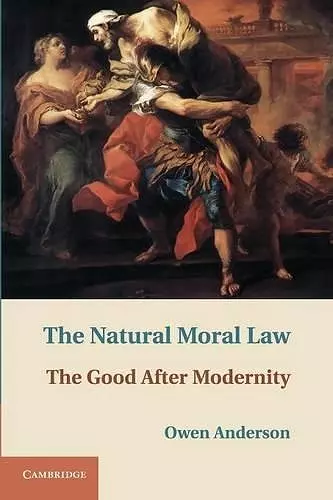The Natural Moral Law
The Good after Modernity
Format:Paperback
Publisher:Cambridge University Press
Published:20th Jun '13
Currently unavailable, and unfortunately no date known when it will be back

This book studies beliefs about the good and how it is known, and how such beliefs shape claims about the moral law.
This book considers whether the good can be known after the challenges of postmodernity. The author studies influential ancient thinkers and how they understood the good, giving special attention to modernity and why it failed to explain the good.The Natural Moral Law argues that the good can be known and that therefore the moral law, which serves as a basis for human choice, can be understood. Proceeding historically through ancient, modern and postmodern thinkers, Owen Anderson studies beliefs about the good and how it is known, and how such beliefs shape claims about the moral law. The focal challenge is whether the skepticism of postmodern thinkers can be answered in a way that preserves knowledge claims about the good. Considering the failures of modern thinkers to correctly articulate reason and the good and how postmodern thinkers are responding to these failures, Anderson argues that there are identifiable patterns of thinking about what is good, some of which lead to false dichotomies. The book concludes with a consideration of how a moral law might look if the good is correctly identified.
“Owen Anderson’s fine book advances the discussion of natural law in contemporary philosophy. One finds between its covers careful, rigorous thinking and lucid writing. It is a valuable contribution to the debate about moral reasoning.” -- Robert P. George, McCormick Professor of Jurisprudence, Princeton University
ISBN: 9781107669758
Dimensions: 230mm x 154mm x 16mm
Weight: 480g
320 pages